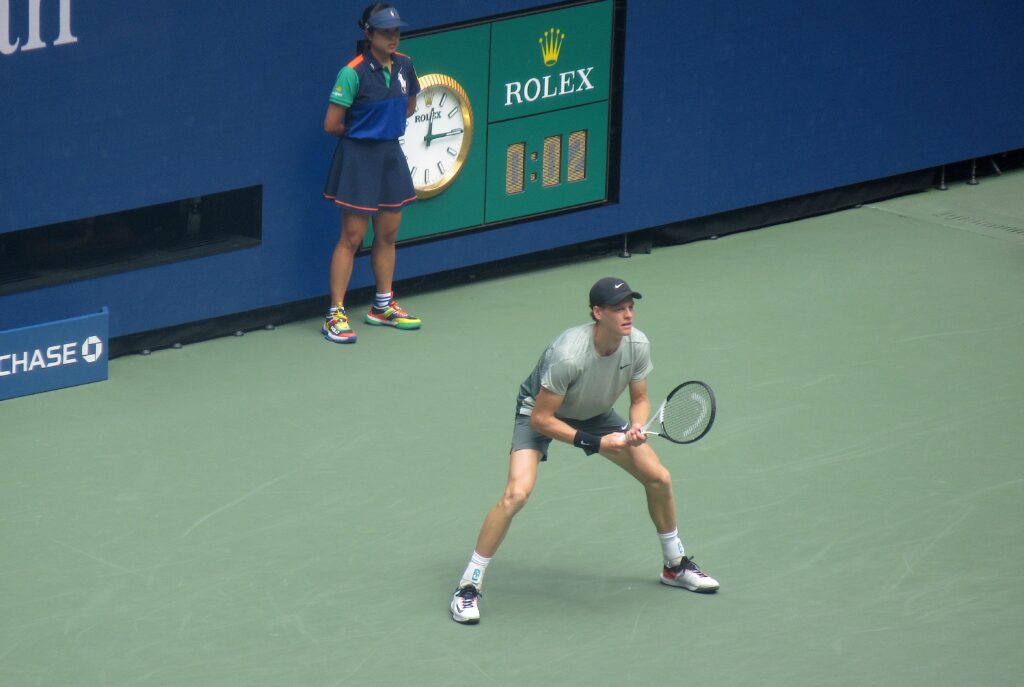[ad_1]

The controversial three -month ban on Jannik Sinner for a few positive tests for the anabolic steroid closol last year in March says that sport is clean, little, but a lot about the bias of top athletes.
This is not a treatise about the guilt or innocence of Jannik’s Sinner. TribuneRicky Dimon explains the facts of the case here. Fans must decide on Sinner’s intentions for themselves. As athletes, they have made the history of Ped (drugs increasing performance) and subsequent ban on their use, Mr. Sinner used an argument “credible rejection” and blamed him of his team (in this case a physics massage).
This defense encounters a different degree of success – and guilt or innocence often come to what believable I had no idea. Everyone cannot be innocent, but given how sensitive these tests are, they are probably not all guilty.
The Russian figure skater Kamila Valieva claimed that she accidentally used her grandfather’s drugs after testing positive for trimethazidine (a drug that increases blood flow). Valievie was finally slap a four -year ban and was deprived of a gold medal, which she won with her Russian team for the Olympic Games jump in 2022. It seems that Wada didn’t think “Oops, I took the gram pills”, sounds liked at all.
In 2006, Skeleton Racer Zach Lund tested positively on the forbidden substance found in his idle hair treatment-what he published every time he competed. However, Wada, who leaned into his policy of zero tolerance, still issued a one -year ban. The problem is that “zero tolerance” does not seem to be the same.
This brings us back to Sinner. Since then, Wada has decided to accept Sinner’s explanation that the presence of Klosbol does not artificially improve the performance of Italian and that its use was not intentional. His punishment? A three -month ban dates far enough to prevent the home champions from disappearing 1000 in Rome and– and more importantly – French Open.
Is there a three -month prohibition reasonable? Perhaps. Mr Sinner was exempt from unlawful conduct, with the exception of his team’s inability. I am sure Wada knows more about the situation than I do, so I will not question his judgment. Is the timing of the ban that is found to help Sinner avoid the disappearance of the French open, also reasonable? Not so fast.
I’m everything for the innocent until it is guilty of guilty. But I can’t help, but I wonder if I like to say … Camilo Ugo Carabelli, placed in 87th place from Argentina or Jake Fearnley (No. 78), got such targeted and concrete accommodation. I guess not.
It would be stupid to think that top sport is not in an effort to protect top athletes. And if philosophy was to treat all professional athletes, as if they were placed in the world, I wouldn’t write this essay. However, Wada’s goal is to “keep sports clean”. It should protect top athletes from expecting to be competitive, they must undergo harmful and even deadly drugs. Maybe it’s in conflict for me, but I don’t remember seeing “Make sure they haven’t been too disappointed on the list that an offensive athlete too much”.
Michael Connelly has a series with a long fiction based on a police detective character named Harry Bosch, who often says “everyone counts or no one counts.” I am afraid that this decision makes Jannik Sinner more than others.
Don’t make a mistake. I don’t blame the sinner. He is the responsibility of his team, referees and lawyers to ensure that he gets the best result. They did it, so everyone is attributed to them. However, the decision itself still slap the prevalence with the highest player. Viktor Troicki and Jenson Brooksby ate lengthy bans for just missing drug tests.
I doubt someone asked one of them when he could be the most convenient time to serve it.
[ad_2]
Source link














